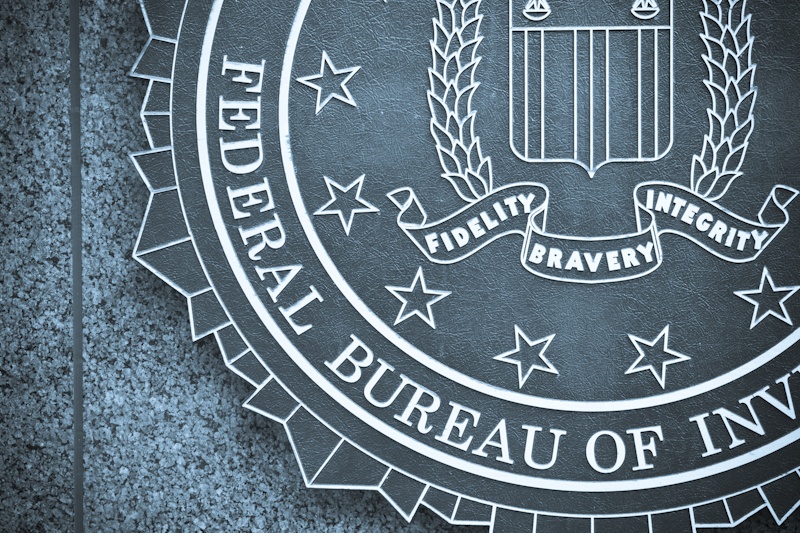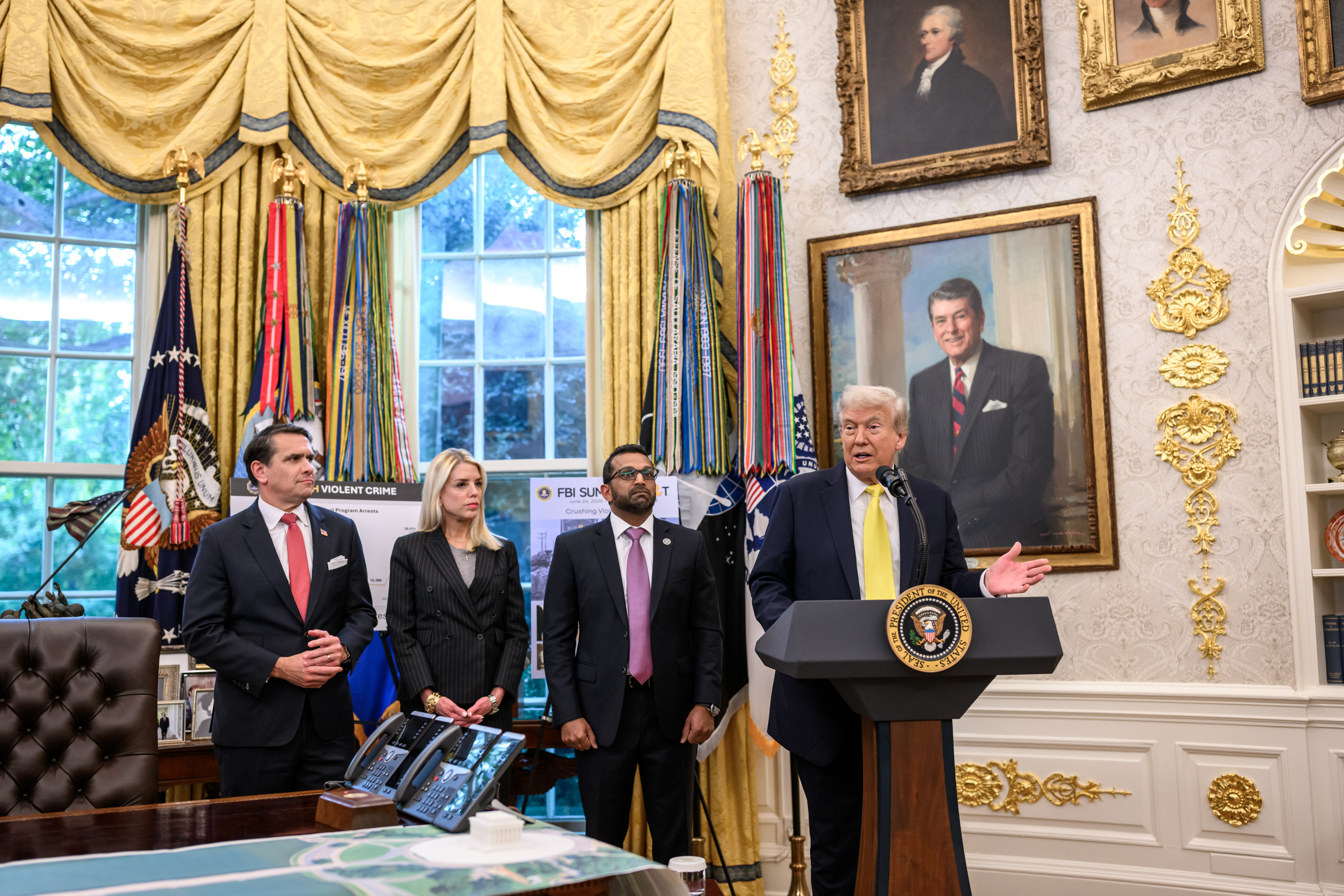The Situation: Real Housewives of the Justice Department
A new reality show playing out before eyes.

The Situation on Sunday considered what makes Erez Reuveni similar to and different from prior Justice Department departees who have spoken out about the Trump administration.
Today, as I sat down to write, it was unclear whether the nation had a deputy FBI director or not. Dan Bongino had been missing from his job since Friday.
Search and rescue teams seemed to have been unable to locate him.
The only trace was a spree of comments like this one to Axios, from “a source close to Bongino”: "He ain't coming back."
Today, CNN reported on the drama of the missing FBI deputy director:
As of Monday morning, no one in leadership at the Justice Department had spoken to [Dan] Bongino since Wednesday, when he implied that he could no longer continue in his position as long as [Attorney General Pam] Bondi was there, sources familiar with the matter said.
The threat infuriated Trump, who spent the weekend fuming over both Bongino and FBI Director Kash Patel, sources told CNN. Most of his fury was directed at Bongino, causing aides to expect that the deputy director would depart his job in the coming days. But Vice President JD Vance spent the weekend attempting to mediate, at times fielding calls from Patel, Bongino and Bondi, sources said.
It remains to be seen if Bongino ultimately resigns, which he told others he was considering. But sources say his relationship with the White House has become basically untenable. Even if he does not quit now, some inside the administration believe he will not stay in the job long-term.
Trump, asked Sunday whether Bongino was still the FBI’s deputy director, told reporters “I think so” and indicated they had spoken.
The actual substance of the dispute between Bongino and Patel, on the one hand, and Bondi on the other, is too dumb to detail or spend time on. Suffice it to say that it concerns whether a sex trafficker who has been dead since the first Trump administration had a client list that the administration should now release, and whether the attorney general—who once said he did have such a list and it was on her desk and now says he didn’t have such a list and it was never on her desk—should resign over her failure to disclose it.
The revolution consumes its own children, and it chews really slow.
No, I am not going to waste your time, nor my own, on the Epstein files.
Instead, I want to raise several questions about the current leadership of American law enforcement that this episode presents.
First, who could have possibly seen this coming?
Who could have imagined that if one put at the helm of the FBI a conspiracy theorist author of childrens’ books—one whose qualifications sage members of the Senate Judiciary Committee like the suddenly venerated Sen. Thom Tillis fiercely defend—to run the nation’s premier law enforcement agency; if we gave such person a deputy who yelled conspiracy theories into a microphone for a living and had never even worked at the FBI before; and if we made both of these men answer to a woman who could not bring herself to say that Donald Trump had lost the 2020 election or even acknowledge the possibility of having to say no to him, that they might not all get along and might entangle themselves in a fratricidal fracas over mindless conspiracy theories?
Who would have thought that members of this team might find themselves refusing to speak to colleagues, leaving the office in a huff, and then just going AWOL such that the president of these United States isn’t quite sure whether he has a deputy FBI director the following Monday?
The deputy FBI directorship, just to be clear, is not a part-time job—the sort of job one just walks away from in an unscheduled manner because, say, one is having drama with the attorney general. It’s one of the true workhorse jobs of the federal government—responsible for the day-to-day management of an organization that does the line work on countless high-stakes investigations around the country.
Who could have imagined that a fellow like Bongino, who had regular temper tantrums on his show, might just, well, have a tantrum and then up and leave? And who would have thought that folks like Patel and Bondi—stolid law enforcement professionals that they are—would spend their days trading whispers about their feud over Epstein with right-wing media figures, rather than putting their heads down and running the law enforcement apparatus they’ve been charged with setting against the president’s enemies?
This brings me to my second question about this whole episode: Is it a good thing that our national law enforcement leadership is squabbling over inanities and performing a real-time QAnon-themed soap opera for our national amusement, rather than doing their jobs?
This is a tough question. On the hand, one would certainly prefer—in an ideal world—that the attorney general and the FBI leadership were focused on solving crimes, protecting the country from foreign threats, prosecuting major public corruption cases, and pursuing violent extremists here at home.
But America right now isn’t quite an ideal world. It’s a world in which the president pardons major crimes and the attorney general specifically eschews prosecutions under the Foreign Agents Registration Act, while scaling back all sorts of national security investigations. It’s a world in which the Justice Department drops major public corruption cases and hires a person prosecuted for Jan. 6 to work on, of all things, de-weaponizing the Justice Department.
This is a world in which both the FBI leadership and the Justice Department brass focus like laser-beams on purging their own ranks of those professionals who have—for whatever reason—fallen under political suspicion: because of cases they’ve worked on, because of who their friends may be, or because they tell the truth to courts.
In such a world, perhaps it’s better that the leadership forms a circular firing squad and attacks each other instead of their jobs as they understand them. Perhaps it’s better that Bongino storms off and takes time—a lot of time—on the golf course. After all, a leadership consumed with attacking itself has less time to conduct inappropriate investigations, to engage in wildly unlawful management practices, and to instruct career officials that they might need to be prepared to say “fuck you” to federal courts—and then to lie about it to Congress. Perhaps the only problem with the weekend’s drama, in the world as it is, is that Deputy Attorney General Todd Blanche and his sepulchral sidekick, Emil Bove III, weren’t also drawn into the fracas and thus did not also take incoming fire from their leadership colleagues.
Oh, and there’s one other problem: Bongino eventually came back.
As I finish writing this column, CNN has updated its story. The lede now reads: “Several of President Donald Trump’s top officials went to work on Monday with a key question unanswered: would Dan Bongino show up? Hours later, two sources familiar with the matter confirmed he did.”
In other words, Real Housewives of the Justice Department—otherwise known as The Situation—continues tomorrow.




